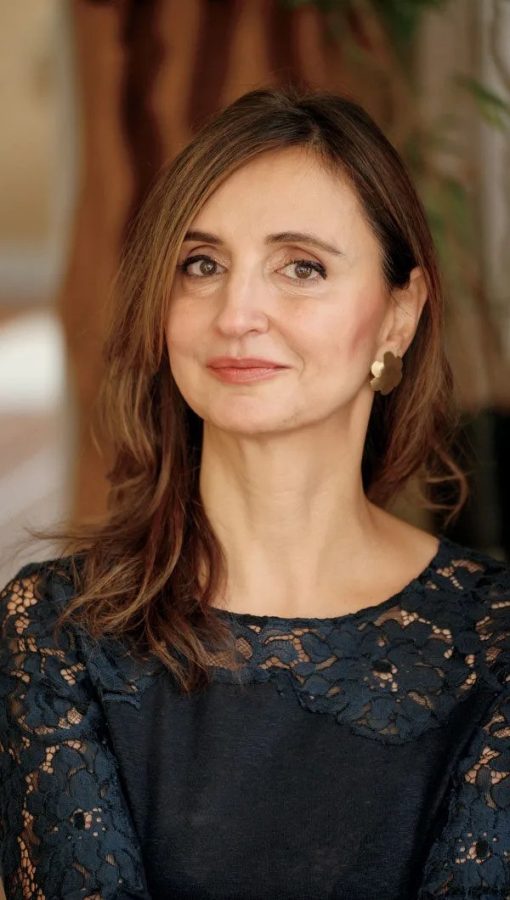Roya Hakakian: Jewish-Iranian poet, writer, and activist
Photo Courtesy of Wilson Center
Roya Hakakian
Roya Hakakian gave a talk this past week titled “The Women of Iran Have Risen Up: Should You Care?” Hakakian is a founding member of the Iran Human Rights Documentation Center. Her work has been published in The New York Times, The Oxford Encyclopedia of the Modern Islamic World, and The New York Review of Books. She has published three books and is currently a lecturer in the English department at Yale University.
This interview has been edited for length and clarity.
Following Mahsa Amini’s killing, there have been massive demonstrations in Iran. Since then, you’ve published several essays for The Atlantic on this topic. How can writing be used as a tool for social change?
An excellent place to begin is to look at where we are in society. There’s been a great deal of division and violence within our country, within the United States, and also generally a great deal of loneliness. So many of us are managing by ourselves and alone. It brings up a larger question of whether we have been able to bring meaning into our lives. We need to find causes that mean a great deal to us, and we can organize our own sense of self around them. As a woman, one of the questions I ask myself and encourage other women to ask is: What happened to feminism? Feminism used to be the thing to do. Women had a great deal to offer the world regarding what it means to have gender equality. In all of the societies around the world, what happened to it? I have a lot of answers as to what happened to feminism, but let’s not go there. There are a great deal of women who have risen up. Iran has come together and given us a reason to come together again as women. The idea of choice is such an important and familiar issue. We have to remember that women have a choice too. It’s about the choice of whether to keep a child or not and the choice of what they can and cannot wear in public. As women everywhere, we fight for choice, whether it’s about what to do with a fetus or what to do with one’s clothes. I think, for many reasons, it’s important to embrace this cause at this moment.
As a native speaker of Farsi, you’ve published collections of Persian poetry. What is the main difference between creative writing and journalistic writing?
I don’t see journalism and creative writing as being different. To me, all writing is about being creative. There’s nothing uncreative about it. When creating a poem, you have to think about the human story and what aspect you are trying to articulate. I’ve been thinking a lot about how you make something that’s not exactly shiny and not obvious to others in terms of its significance, and through poetry and journalism, you can make it relevant to others. That’s the fundamental challenge for me in writing. We can look into obscure but significant matters through lyricism and reporting.
How has your upbringing as a religious minority changed your view of the world?
When you are the majority, you grow up very comfortable, and that sense of comfort isn’t conducive to being an artist. Being in the minority, there’s always something that bothers you, and sometimes I describe it as an “itchy sweater.” You don’t want to take it off and can’t figure out why it isn’t as comfortable as it should be. If there has been an advantage to being a Jewish person in a Muslim-majority country, it’s that I’ve always asked serious questions. Starting as a young child, I’ve wondered “Who am I? Do I belong? What is belonging? Do I really want to belong?”
Your most recent book, A Beginner’s Guide to America: For the Immigrant and the Curious, depicts many immigrant experiences. What motivated you to write this book?
The book disguises itself as a memoir, but it is ultimately a book for native-born Americans, so they are able to see what the immigrant sees. Those born in the U.S. assume everything is a part of the social decor. Well, it isn’t. People misunderstand that an immigrant isn’t just someone who picks our fruits and staffs our hospitals. This book shows small things like different traffic laws that everyone believes in and abides by. These small things are a product of a social contract, so the book is an opportunity for Americans to see the perspective of those who haven’t been born here. Donald Trump has said a few things that really shook me up. He said, “Our country is full,” and that we shouldn’t allow people into this country without specialized skills. I’ve looked at his criteria and realized that I would have never gotten in if he had been president when I came to the U.S. I came as an 18-year-old high school graduate with only a backpack and no English. If Donald Trump had been president then, my destiny wouldn’t be what it is today. I’ve felt that I’ve had to justify why letting someone like me into this country is an excellent decision.










